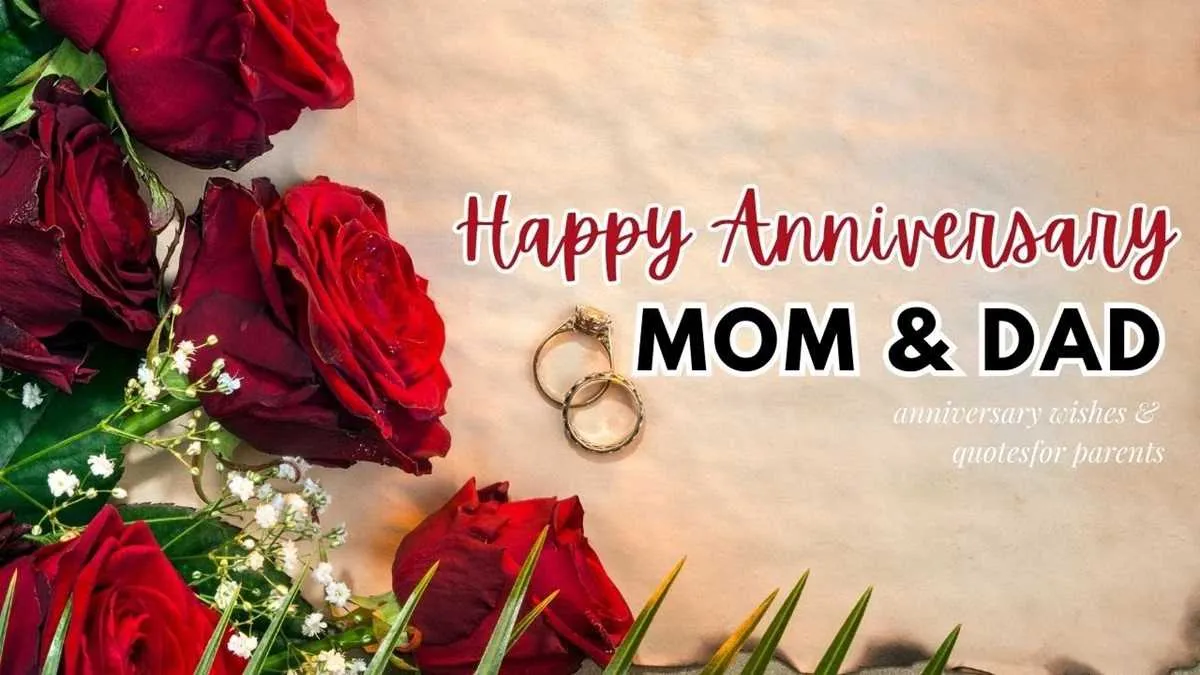Heartfelt words to celebrate your parents on their wedding anniversary

Write directly to both of them. Use their names, not just “Mom and Dad.” Personalization matters more than phrasing. Mention something they’ve shared with you–maybe a tradition, a phrase they repeat, or a small moment you admire.
Keep it short and warm. Three to five sentences work best. Start with a thank you. Add a memory that highlights what makes their relationship meaningful to you. End with a sincere wish, not a generic one.
Example: “Thank you for showing me what true patience and kindness look like. I still think about the way you make breakfast together every Sunday–it’s the smallest things that say the most. Wishing you both another year of quiet mornings and loud laughter.”
Stay away from quotes unless it’s something personal they say often. Store-bought phrases don’t carry weight unless they’re part of your shared history. Use your own voice. If it sounds like something you’d never say aloud, rewrite it.
Avoid overthinking the tone. Speak from the center of your experience with them. Even a few honest lines will stay with them longer than anything polished.
Happy Anniversary Parents Message
Choose one clear memory from your childhood that still makes you smile and build your message around it. Focus on specific moments–morning routines, shared meals, road trips, or quiet evenings. These details speak louder than general compliments.
- Mention a shared tradition, like weekend pancakes or family movie nights, and how it shaped your idea of togetherness.
- Thank them for a lesson they taught through actions, not words–like patience, consistency, or how they treated each other with kindness under stress.
- Add one short sentence about how their example impacts your life today. Be honest, not poetic.
End your message with a simple line that acknowledges their time together without exaggeration. For example, “Thirty years of shared mornings is something I quietly admire.” Let the message sound personal, not polished.
How to write a heartfelt message from a daughter or son
Begin with a memory that only your parents would recall. Mention a shared moment that made you feel supported or proud of them. Specificity shows care – skip vague praise and go for something they’ll instantly recognize.
Use direct, simple language. Say “You taught me how to stay kind even when things were hard” instead of abstract phrases. Show how their actions shaped your life – not with big words, but with real examples.
Avoid generic greetings. Write their names or use “Mom and Dad,” then jump into the message. “Thank you for every time you stayed up waiting for me” is stronger than “Thank you for always being there.”
Balance emotion with structure. One sentence for gratitude, one for a memory, one for a lesson, and one for love. Example: “You made every holiday feel magical. I still hear your laughter in my head. That’s how I learned to create joy for others. I love you.”
End with something forward-looking. Write what you hope to share with them next – a meal, a trip, another quiet evening. This shows connection, not just reflection.
Examples of short and sweet anniversary wishes
Say “You two make love look easy.” It’s casual, heartfelt, and fits any tone.
Try “Still crazy about each other–love it!” It keeps things light and celebratory.
Use “Wishing you more laughter, less laundry.” It adds a humorous twist that many couples appreciate.
Write “Cheers to another year of being awesome together.” Simple, upbeat, and personal.
Send “Love like yours never goes out of style.” It’s warm and doesn’t overdo sentiment.
Use “Happy anniversary to the best team I know.” Perfect for parents who do everything together.
Go with “Still the best decision you both made.” It’s clever and supportive without being too formal.
Pick “A love that’s still growing–nicely done.” Keeps the message short and meaningful.
Choose “Here’s to decades of shared snacks and smiles.” It adds a personal, everyday touch.
End with “Same couple, new memories–cheers to that!” Easy to personalize and suitable for cards or texts.
What to avoid when crafting a personal note
Stay clear of overly formal language that can make the message sound impersonal. Your note should reflect warmth and affection, so avoid phrases that might feel distant or detached. Skip using cliches or overused phrases that lack sincerity. For instance, phrases like “I hope you have a wonderful day” or “You deserve the best” are often seen as filler rather than heartfelt sentiments.
Don’t make the message too long or overly detailed. The goal is to share meaningful thoughts, not to list every memory or feeling. Stick to the essentials and express your emotions concisely. Overloading the note with too much information can dilute the impact of your message.
Avoid focusing solely on external factors like gifts or material things. A personal note should celebrate the bond you share, not just the physical celebrations. Mentioning love, support, and appreciation creates a more lasting impression than emphasizing physical tokens or events.
Don’t neglect the tone. While humor can be a great addition, ensure that it aligns with the context of the relationship. Avoid humor that might be misinterpreted or that doesn’t resonate with the recipient’s sense of humor.
Lastly, steer clear of negative or critical remarks. Even if there are unresolved issues, the note is not the right time to bring them up. Keep the tone positive and focused on celebrating the love and bond between you and the recipients.